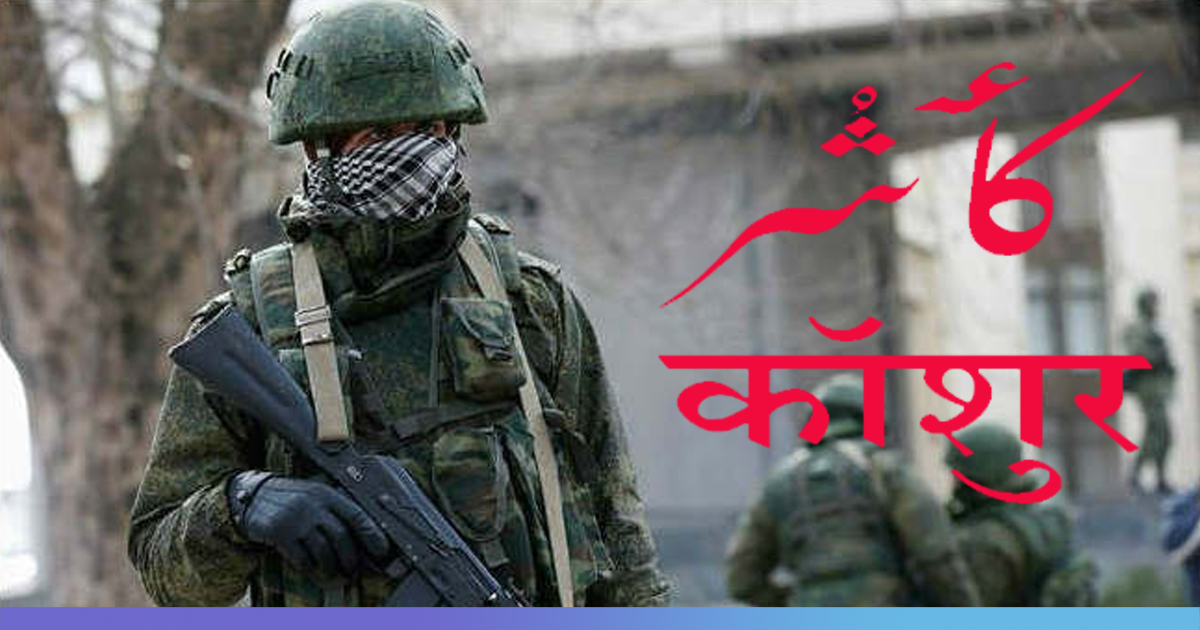A day before Jammu and Kashmir officially became a union territory, Bharatiya Janata Party’s (BJP’s) national secretary, Tarun Chugh said that now Hindi will be the first and official language of the state.
“The best thing is that now Urdu will no longer be the first and official language of the state. Hindi will be the first and official language of the state,” Chugh said on October 30.
While the majority in Jammu region uses Hindi to read, write and converse; the language remains highly unpopular in the area of Kashmir where the standard writing system from textbooks to official documents remains to be in Urdu.
Many Kashmiri people told The Logical Indian that the move appears to be an attack on the diverse cultural fabric of the Northern-most region and imposition of ‘Indian cultural ethos’.
“The selected rulers of the state are hell-bent to destroy our cultural identity. Majority of the population don’t even understand Hindi. We are Urdu speaking people. India wants to destroy our identity. They are now trying to invade our languages and culture,” said Sameer Showkin Lone, Kashmiri journalist and employee at Niti Aayog.
However, Showkin also believes that there is no harm in learning new languages. But imposing something on someone will backfire. “India has morally lost Kashmir. It is holding it on gunpoint,” he added.
According to another Kashmiri human rights activist Lubna Sayed Qadri, in Kashmir, Urdu and Kashmiri can’t be lost to Hindi because of its cultural and historic significance in shaping Kashmiri Civilization. It has personal sentimental value as well.
The grip of Urdu remains strong in the Valley as the religious scriptures are written in Urdu and all official records land, revenue, courts, and even FIRs are scripted in Urdu.
Speaking to The Logical Indian, Lubna further said, “Invading your language is a political tool in conflict, for instance, Urdu is the language of land and revenue records, changing it to an alien language like Hindi will leave people baffled. It will be used as a weapon to manipulate our land and revenue records.”
Lubna believes that in Kashmir where there is already no judicial or police accountability, imposing foreign language in Courts and Police records will make the process of seeking justice more complex and opaque, leaving no room for justice.
“Largely, it is an attack on the religious rights of Muslims in Kashmir, as a major part of Islamic literature is available only in Urdu in Perso-Arabic script,” she further added.
Urdu strings different dialects including Kashmiri, Dogri, Gojri, Ladakhi, Pahari and Balti spoken in Jammu-Kashmir together. Introduced during Dogra rule in the state, Urdu was highly common even when it wasn’t the mother tongue of any indigenous community of J&K.
The emerging Pashto-speaking linguistic minority in the Valley is using Urdu as the only language of interaction with others around.
In the last 130 years, Urdu has grown exponentially in the Valley and has bridged the gap between Non-locals and locals in Kashmir.
Most of the Islamic religious literature that was written in the last 150 years is in Urdu. That makes Urdu the most selling language in Jammu and Kashmir.
Homegrown to India, an overwhelming population of 48 million Indians still choose Urdu as a means of communication. Highly prevalent in the Northern belt including Uttar-Pradesh and Bihar, Urdu remains one of the 22 official languages of India.
Meddling With the Kashmiri Nomenclature
This speculation of changing the official language comes amidst the Centre already planning to change the names of famous stadiums and streets in Kashmir after Indian Independence leaders.
The threat also hovers over prominent places, including government buildings in Kashmir, as their naming ceremony is going to take place by the end of this year.
According to media reports, preparations for the change of nomenclature are on. The Centre is likely to release the renamed versions of the places by December 15 – which marks the death anniversary of Sardar Patel.
“The Indian state has always been on the forefront in weakening the cultural identity of Kashmiri society. And they have already tried and (failed) so many things in Kashmir. Now, they are trying to tarnish the glorious culture of the Valley,” said Rayees Rasool, a Kashmiri activist.
Rasool also believes that whatever the Centre is doing in Kashmir has been backfired them and has made Kashmiri society at large more defensive.











